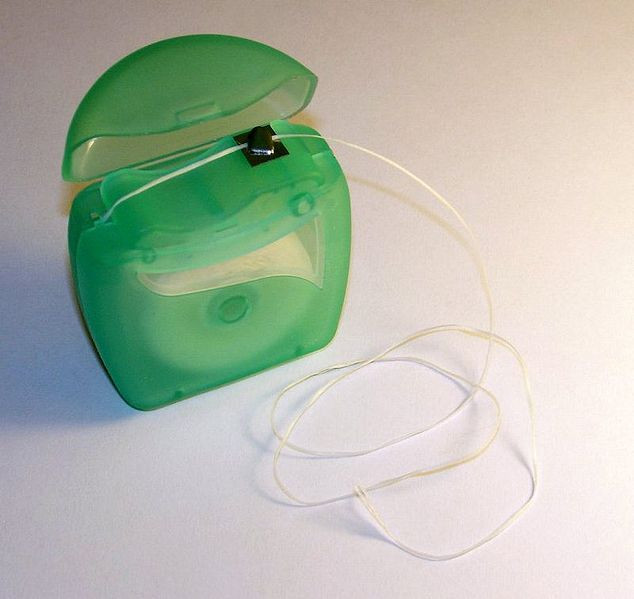Dental Floss Is Useless, Dentist Says

Many people hate going to the dentist. Sitting in the chair means seemingly endless prodding in your mouth, forcing to suffer through dentists' questions while they are poking into your mouth, and at the end of it all, a scolding because we do not floss enough.
However, a book called Kiss Your Dentist Goodbye, argues that flossing may be a waste of time for dedicated adherents to the practice.
The book is written by Dr. Ellie Phillips, one of the first female dentists to train at Guy's Hospital London, an esteemed hospital where many well-reputed physicians have trained.
She says that flossing will do nothing to prevent tooth decay.
Instead, she says that people should use three types of mouthwash. Many people brush their teeth immediately after meals, which some experts say is bad, because food can soften teeth. The practice, she says, can lead to the wearing down of teeth.
In order to prevent that wear down, she recommends Ultradex, a mouthwash that contains chlorine dioxide and which some studies have shown wash away bacteria.
Then, after brushing, she recommends a regular mouthwash, like Listerine, to enhance cleaning. Afterwards, she says that brushers should follow it up with Fluorigard, which helps to fortify and fix teeth.
She also recommends gum and lozenges that contain xylitol, a naturally occurring sweetener that many studies have shown to reduce tooth decay.
Indeed, Dr. Phillips may have a point. No study has shown that flossing helps to prevent tooth decay in the long term.
Only one study has been found to show that flossing was beneficial. That study required children to have their teeth flossed by a hygienist five days a week for two years.
However, other dentists argue that the reason that flossing has not been shown to have a consistent benefit is because so few people do it correctly. Though flossing has been espoused by dentists for the past two decades, only 5 percent of people floss regularly.
In addition, the proper technique for flossing is rarely used by most people. Flossers are supposed to wrap the string around the mouth in a C-shape.
In addition, floss has been shown to help fight gum disease and perhaps heart disease, since the plaque that causes gum disease and heart disease is the same.
Dentists say that, if we do not floss between the teeth, we are only reaching 60 percent of the teeth's surface. Many dentists swear by interdental brushes, which reach between the teeth to dig beneath the surface.
As for xylitol, its tooth decay benefits have been shown in many studies. However, it can also cause diarrhea and flatulence, so it is not recommended for children or the elderly.
In the end, keeping teeth healthy is usually a simple process. Dentists say to avoid sugary foods between meals and to brush with fluoride toothpaste. Floss still has not been shown to harm health and, in fact, likely has a great deal of benefits.
Published by Medicaldaily.com



























